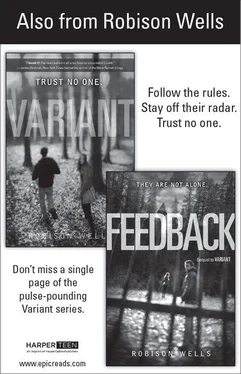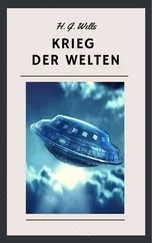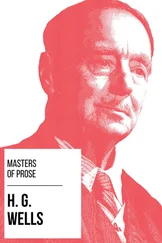Eastman stopped him and then moved across the room, his back against the wall. He turned to a new page. “Now read.”
Jack squinted. “Stability operations in an urban environment require offensive, defensive, and support operations, combined with other tasks unique to each stability operation. Army forces conduct—”
“Extraordinary,” Eastman said, closing the book. “Hold on.”
Jack rolled his eyes. “Where else am I going to go?”
A moment later the chatter in the other room stopped and Jack peered over to see Dr. Eastman standing on the other side of the mirror.
“You can see me?” Eastman said.
“Yes.”
“Repeat what I say.” He held up the book and read from the table of contents. “Urban Outlook. Urban Environment. Urban Threat. Contemplating Urban Operations.”
Jack closed his eyes. It was all he could do now to not vomit. “Urban Outlook. Urban Environment. Urban Threat. Contemplating Urban Operations.”
“Jack?”
Jack cracked one eye open and looked at the doctor, who was grinning broadly.
“You think you don’t have the virus?” Eastman said. “The room you’re in is dark. I can barely see your silhouette. And you’re hearing me through soundproof glass. I’m not using a microphone.”
“What?”
“Your brain,” he said. “These readings—they’re off the charts. It’s incredible.”
“I’M GOING TO ASK YOUsome questions,” the soldier said to Laura. He had a large yellow legal pad on the table in front of him, and was scribbling in handwriting she couldn’t read.
“Sure,” Laura said, keeping her voice calm. She didn’t want to appear overeager. The medicine helped with that—it mellowed her out, but it also dulled her senses. She needed to be on her A-game.
He set down his pen and then looked into her eyes. There was a coldness to him, and it made her want to behave even more warmly. But she held back. Stay calm. Don’t act so quick to please.
“We haven’t been able to contact your parents,” he said.
Of course not, she thought. Her parents had their own jobs to do.
She paused, trying to think of how to respond. They weren’t even her parents. They were more like her caretakers. Her trainers. Her teachers. She’d grown to respect them, but it was never a loving relationship.
“I’m sure they’re okay,” she finally said, doing her best impression of a stiff upper lip.
“Aren’t you concerned?” he asked.
“Sure, I’m concerned,” Laura answered, now going for indignant. “They’re my parents. But my dad is good at hunting, and my mom is from Montana. They probably went north.”
“Without you?”
“I got out of Denver to escape the attacks,” she said. “When I left—well, when I left we sort of knew it might be a long time before we saw one another again.”
She wasn’t sounding sympathetic enough. She was too uncaring. Too detached.
“They would just send their daughter off with her friends?”
“I—” she started, and then stopped, trying to bring tears to her eyes. They didn’t come. “I wasn’t the best daughter.”
He picked up his pen, but didn’t write anything—just twirled it slowly in his fingers. “So you left against their permission?”
“It wasn’t like that,” she said, and attempted a weak smile. “I didn’t run away. We . . . Well, we had gotten to the point where they knew that I was going to do what I was going to do.”
This interview wasn’t going how it was supposed to. She was coming across as too hard. Too rebellious. That wasn’t going to help her, and she needed to fix it. She wished she could cry.
He opened his mouth to speak, but she interrupted him.
“What’s happened to Denver? Is it safe?”
“You have friends there you’re worried about?”
“Of course I do.”
“Are you enrolled in school?”
“UC–Denver,” Laura said. “First semester. I was only there a week before the attacks started and the campus shut down.”
He tapped the pen on the pad now, but still didn’t write anything. She couldn’t read him. Was this an interrogation? Did they suspect her? Or were they interviewing all the Lambdas?
“Is there any way you can find out if my friends are okay?” she pressed, trying to look hopeful—even desperate. She’d been part of the team that had taken down Mile High Stadium, and she hoped the city was burning. But that couldn’t show on her face. She wasn’t as good as Alec, but she knew how to lie.
“I’ll try to have someone find out for you,” he replied.
“Thank you.”
“Now, on to another subject,” he said, and leaned back in his chair. “How long have you been aware of your strength?”
She felt a sense of relief. She was ready for this question.
“Not long. I first noticed it around graduation.”
“And did you go to a doctor?”
She shook her head. “I never felt sick—I felt great. Plus, it didn’t come on all at once. It grew a little every day. At first I just thought I was in good shape—that it was finally summer and my body was all excited to be outdoors again. By the time that I realized it was more than that, I didn’t want to waste time going to the doctor. I was having too much fun. I’d go to Rocky Mountain National Park and run the hikes to the peaks—I mean, flat-out sprint. I’ve always been active—I did gymnastics and track in high school—so this was perfect. I loved it.”
Some of that was true. She had practiced running the peaks, and she had loved the freedom, but her abilities had come on two years before, and she wasn’t just running for pleasure. She was running with her “dad” at the bottom of the trail, timing her, over and over again. She’d free-climbed the Keyhole Route of Longs Peak, going early in the season to avoid onlookers. Cold and ice had blistered her skin, but she pushed through.
She wasn’t going to let this temporary quarantine camp stop her only three weeks into the attacks. She’d trained too long and too hard.
The soldier across from her leaned forward and put both arms on the table. “And at no time did you ever think ‘this is abnormal—I should go see a doctor’?”
Laura laughed, and she knew she nailed it—warm and pleasant, the all-American girl. “If you could suddenly do anything you wanted to—be any Olympic athlete you wanted to be—would you stress about what was wrong with you? Or would you enjoy it?”
He smiled at that. She’d finally made him smile.
“One last question for now,” he said. “You were living the dream, and then you got picked up by some local police and put in our flimsy warehouse. Why didn’t you ever try to escape?”
“I never wanted to escape,” she said, her face fading from gleeful to somber. “I saw what happened to Denver. I’ve watched the news. You’re the good guys, right? Why would I fight you?”
AUBREY WOKE UP IN Alarge room. She was lying in something like a hospital bed, with metal handholds on the sides, but the rest of the place looked oddly . . . homey. The sixteen beds all had clean, brand-new quilts, and each was next to a dresser with a lamp. She was the only teenager in there. At her feet, dropping a syringe into a red plastic box, was a man dressed in a lab coat.
“Aubrey Parsons?” he asked.
She ached all over, and her sight wasn’t quite right. Something heavy was wrapped around her ankle.
“Aubrey?” he asked again.
She wanted to disappear, but for some reason her head felt cloudy, like she couldn’t remember how to do it.
“Who are you?” she finally asked.
Читать дальше












